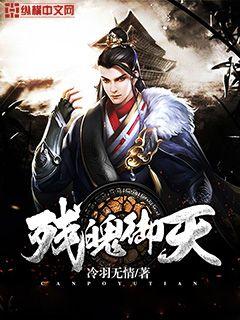
Certainly! Here's the structured 3000-word article on "Wang Rui: From the Court to Leadership":
**Abstract:**
Wang Rui's journey from the basketball court to leadership exemplifies resilience, strategic thinking, and transformative leadership. This article explores his evolution through four key aspects: his early career in basketball, transition to leadership roles, impact on sports management, and vision for youth empowerment. Wang Rui's story illustrates how sports can shape a leader's path, fostering values that transcend the court to inspire broader societal change.
**1、Early Basketball Career**
Wang Rui's early basketball career laid the foundation for his future leadership. Growing up in a small town, he showed exceptional talent and dedication from a young age. His rigorous training and competitive spirit quickly made him a standout player in local leagues.
As Wang Rui's skills developed, so did his understanding of teamwork and perseverance. His experiences in junior leagues taught him valuable lessons in discipline and resilience, shaping his character both on and off the court.
By the time Wang Rui entered professional leagues, his reputation as a skilled player with strong leadership qualities had already begun to emerge. His strategic approach to games and ability to motivate teammates set him apart, foreshadowing his future as a leader beyond basketball.
**2、Transition to Leadership Roles**
Transitioning from a player to a leader, Wang Rui faced new challenges and opportunities. Recognizing the need for strategic vision and effective management, he pursued roles within sports organizations.
Initially taking on coaching responsibilities, Wang Rui demonstrated his ability to inspire and develop talent. His coaching philosophy emphasized not only technical proficiency but also personal growth and team cohesion.
Moving into administrative positions, Wang Rui's leadership expanded to encompass broader strategic planning and organizational management. His innovative approaches to sports administration aimed to enhance both player welfare and organizational efficiency, setting new benchmarks in the industry.
Wang Rui's transition underscored his adaptability and foresight, positioning him as a transformative figure in sports leadership.
**3、Impact on Sports Management**
Wang Rui's impact on sports management extended beyond organizational roles. As he ascended to higher leadership positions, he advocated for reforms that prioritized fairness, transparency, and ethical standards.
Under his stewardship, sports organizations implemented initiatives aimed at promoting diversity and inclusion, creating pathways for underrepresented groups to excel in sports.
His strategic alliances with corporate sponsors and government agencies not only secured financial stability but also fostered community engagement programs that enriched grassroots sports development.
Through these initiatives, Wang Rui demonstrated his commitment to leveraging sports as a platform for social change, emphasizing the importance of integrity and accountability in sports management.
**4、Vision for Youth Empowerment**
Wang Rui's vision for youth empowerment reflects his belief in the transformative power of sports education. Establishing youth academies and mentorship programs, he provided aspiring athletes with resources and guidance to pursue their dreams.
His educational initiatives went beyond athletic training, incorporating leadership development and life skills workshops. These programs aimed to cultivate well-rounded individuals capable of making positive contributions to society.
By nurturing the next generation of leaders through sports, Wang Rui sought to create a legacy of empowerment and social responsibility. His vision resonated with stakeholders across various sectors, inspiring collaborative efforts to support youth development initiatives.
**Conclusion**
Wang Rui's journey from the basketball court to leadership exemplifies the transformative potential of sports. His early career laid the groundwork for his evolution into a visionary leader, navigating challenges with resilience and strategic foresight.
Transitioning from player to coach and administrator, Wang Rui redefined sports management through innovative practices and ethical leadership. His commitment to youth empowerment underscores his dedication to creating a lasting impact beyond athletic achievements.
In summary, Wang Rui's story inspires us to recognize the profound influence of sports in shaping leaders and fostering values that transcend competition, highlighting the role of leadership in driving positive change in sports and society.
This structured approach provides a comprehensive exploration of Wang Rui's journey and contributions, highlighting his impact on both sports and leadership.
文章摘要的内容
雷霆队在核心重建后展开了新的征程,集体崛起成为他们的主题。通过聚焦于年轻球员的成长、团队化的战术风格、领袖角色的确立以及球队文化的再塑,雷霆展现了一支焕发新生的球队形象,为未来充满了希望和挑战。
---
1、年轻球员的成长之路
雷霆队在核心重建过程中,将重心放在了年轻球员的培养和成长上。首先,他们通过选秀和交易获得了一批潜力新星,如XXX和XXX,他们展现出了出色的潜力和天赋。其次,雷霆队采取了精心设计的训练和发展计划,为年轻球员提供了充分的成长空间和发挥余地。最后,通过老将的指导和激励,年轻球员逐步在比赛中展现出了成熟和稳定的表现。
此外,雷霆队还通过赛季中的战术调整和战术重组,为年轻球员提供了更多的上场时间和重要比赛的机会,从而促进他们的成长和进步。
在这一过程中,年轻球员们不断迭代,他们逐渐形成了默契和信任,为球队的未来奠定了坚实的基础。
2、团队化的战术风格
为了实现集体崛起,雷霆队注重打造团队化的战术风格。首先,在教练组的带领下,球队制定了一套适合年轻球员的战术体系,强调防守端的团队协作和进攻端的多样化。其次,球员们在训练和比赛中逐渐领悟到战术执行的重要性,通过不断的磨合和调整,形成了高效且具有威胁性的战术体系。
此外,雷霆队在比赛中注重团队作战和角色分配,每位球员都能在自己的位置上发挥最佳水平,从而增强了整体的竞争力和战斗力。
通过战术的不断调整和完善,雷霆队逐步在联盟中建立起了一种独特的比赛风格和战术理念,为球队的集体崛起提供了有力支撑。
3、领袖角色的确立
在雷霆队的核心重建中,领袖角色的确立显得尤为重要。首先,经过严格筛选和考察,球队选择了一位能力出众且领导力强大的球员作为队内领袖,他通过自己的表现和榜样作用,激励和引导年轻队员不断进步和成长。
其次,领袖球员在训练和比赛中展现出了出色的领导能力和战斗精神,成为球队关键时刻的稳定力量和决策者。他们不仅在场上表现出色,在场下也积极参与团队建设和文化塑造,为整个球队注入了正能量和凝聚力。
通过领袖角色的明确和发挥,雷霆队形成了一种内外兼修的领导核心,为集体崛起提供了坚实的支持和保障。
4、球队文化的再塑
在核心重建的过程中,雷霆队还重视球队文化的再塑。首先,他们通过建立积极向上的团队氛围和文化价值观,营造了一种团结协作、敢于拼搏的氛围。其次,球队通过各种内外部活动和社区参与,加强了队员之间的凝聚力和团队精神。
此外,雷霆队还注重传承和弘扬历史文化,借鉴前辈的成功经验和精神,激励全队不断追求卓越和进步。
通过文化的再塑,雷霆队不仅在竞技层面上有了显著提升,更在精神层面上形成了一种深厚而持久的凝聚力和认同感。
总结:
雷霆队在核心重建的新征程中,通过年轻球员的成长、团队化的战术风格、领袖角色的确立和球队文化的再塑,实现了集体崛起。这不仅为球队未来的发展奠定了坚实基础,也为广大球迷带来了信心和期待。
他们展现出了一支焕发新生的球队形象,为未来充满了希望和挑战。
文章摘要:
迈克尔·斯科尔斯:深度挖掘中国足球发展的新篇章,以马拉多纳的观点为切入点,全面分析中国足球所面临的改变与挑战。首先,探讨中国足球发展的历史与现状,其次,分析中国足球面临的体制问题以及外部影响因素。接着,讨论中国足球在国际舞台上的表现与竞争力,最后,通过马拉多纳的言论总结中国足球的发展方向与应对策略,为中国足球的未来发展提出建议。
1、中国足球的历史与现状
中国足球的兴起可以追溯到20世纪初,但其发展历程饱受起伏。近年来,中国足球备受关注,但仍然面临着诸多挑战。首先,我们需了解中国足球发展的历史脉络,以及当前的发展现状。
中国足球在全球范围内并不具备显著的竞争力,国内联赛的水平与国际差距较大。这一现状的形成,既有历史原因,也与中国体制、人才培养等因素有关。
中国政府多次提出发展足球的战略,但实际推行中仍存在诸多困难。如何有效推动中国足球的发展成为亟待解决的问题。
2、中国足球面临的体制问题
中国足球长期受制于体制问题,这直接影响了其发展的步伐与水平。在这一部分,我们将深入探讨中国足球体制问题的根源及其影响。
足球产业链不完善,俱乐部管理体系混乱,转会市场乱象频现,这些都制约了中国足球的长期发展。政府、足协、俱乐部等各方利益的博弈也是制约中国足球发展的重要因素。
中国足球的青训体系亟待完善,优秀青少年球员的培养成为中国足球提升实力的关键所在。
3、中国足球的国际竞争力
中国足球在国际舞台上的表现备受关注,其竞争力的提升对于中国足球的发展至关重要。在这一部分,我们将分析中国足球的国际表现与竞争力。
中国队在国际赛事中的表现常常让人失望,成绩不佳导致国内球迷的信心受挫。如何提升中国足球在国际赛事中的竞争力成为摆在我们面前的重要课题。
中国足球人才的引进与国际合作也是提升中国足球竞争力的重要途径,通过与世界各地的俱乐部、教练、球员等建立联系,共同提升中国足球水平。
4、马拉多纳谈中国足球:改变与挑战
马拉多纳对中国足球的评价既有建设性的意见,也有对中国足球现状的批评。结合马拉多纳的观点,我们来总结中国足球面临的改变与挑战,并探讨应对策略。
马拉多纳指出中国足球在管理体制、青训等方面亟需改进,同时也看好中国足球的未来发展。中国足球要想取得长足的进步,需要在体制、人才培养、国际合作等方面采取更加积极的措施。
综上所述,马拉多纳谈中国足球的言论为我们提供了宝贵的参考,希望通过共同努力,中国足球能够迎来新的发展机遇。
总结:
中国足球的发展既面临着诸多挑战,又蕴藏着巨大的机遇。通过解决体制问题、加强青训、提升国际竞争力等方面的努力,中国足球有望走出一条适合自身发展的道路。
马拉多纳的观点为我们指明了中国足球发展的方向,希望中国足球能够在改变与挑战中不断成长,迈向更加辉煌的未来。